For quite some time, we have seen child artists, teenage pop stars, and other young people playing instruments and becoming musicians at a young age. Some acquired the talent, while in some it was an inherent trait.
Any child can pick up an instrument and learn and acquire the nuances of playing one, for it comes with a host of benefits. Here are a few of the amazing benefits that your child can derive when playing a musical instrument:
1.Improves body coordination:
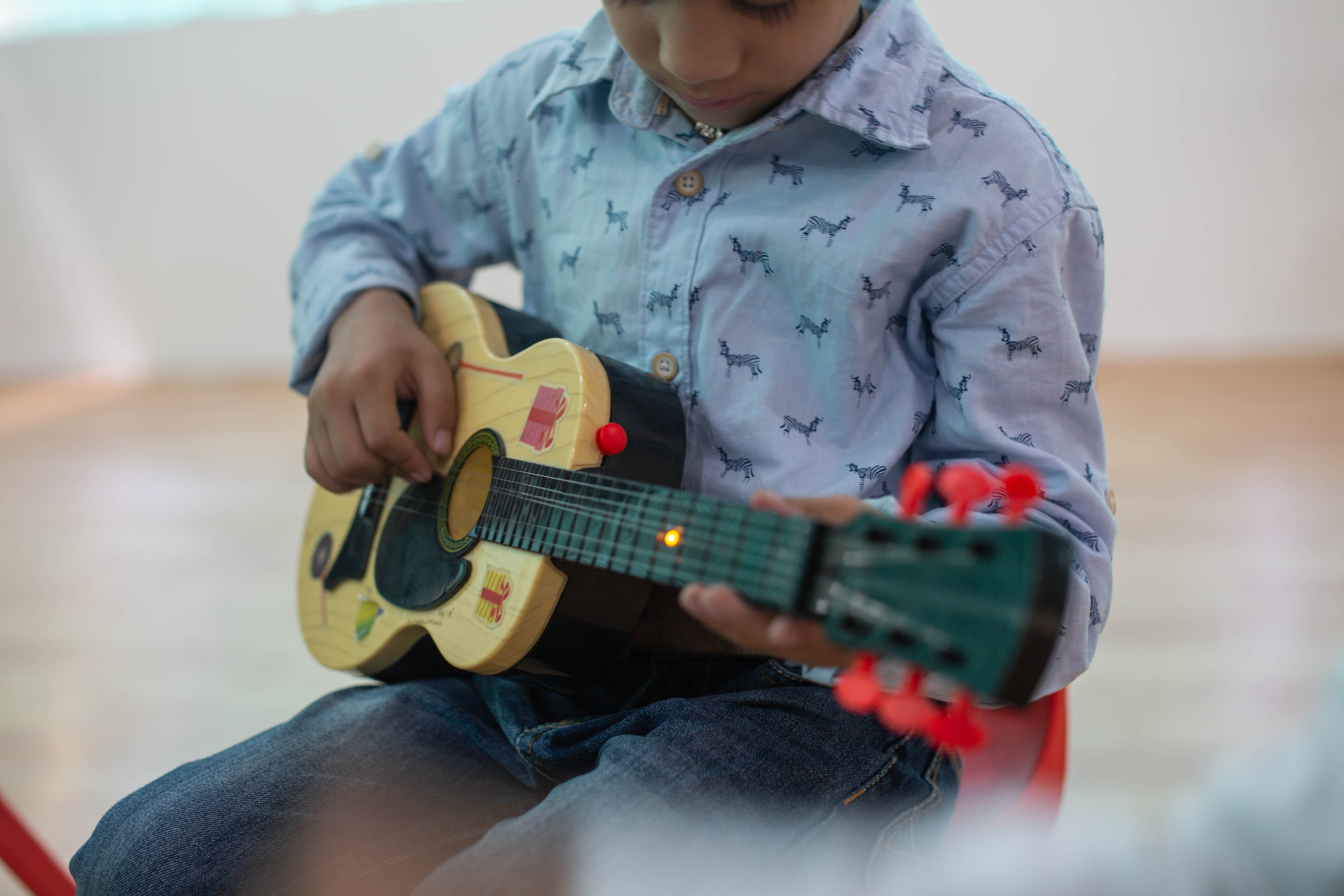
Typing the keys on a piano, vibrating the strings of the guitar, or on a violin, or the reeds on a harmonica all require the brain to work at quick speeds. This helps in the development of fine motor skills, by which your child is able to use both his hands with dexterity while at the same time reading notes.
In this way, there is increased hand to eye coordination, which improves your child’s ability to be able to think on their feet and make on the spot decisions, while all the same time making the brain more agile.
2.Improves arithmetic skills
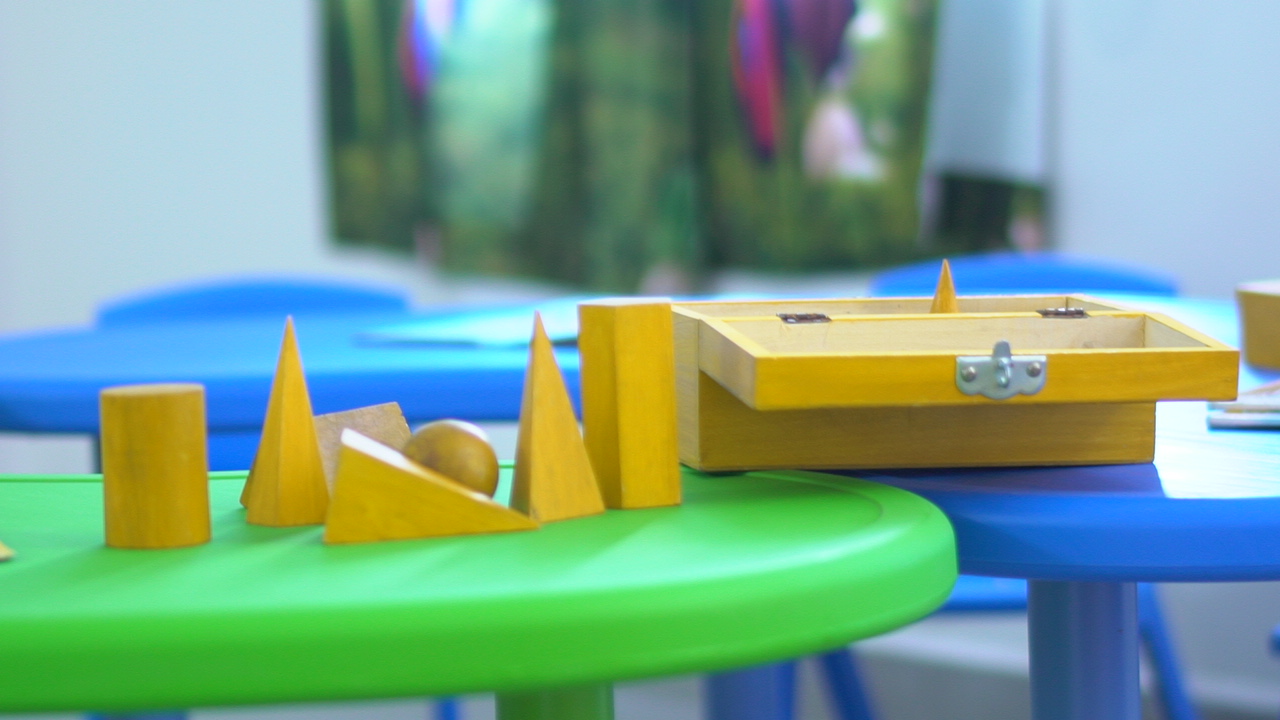
Playing the violin or the guitar involves having to know musical terms like beat, chords, rhythm, octaves, strings etc. In this way, children learn to divide well, understand fractions and musical patterns, thus improving their arithmetic skills.
3.Improves memory and listening skills
Reading the notes and playing them on an instrument increases a mind’s agility and concentration. They use both the left part of the brain, which is the creative part and the right part, the logical part to play the instrument and read the notes.
Quick processing of written notes and reproducing them on the instrument, allows for the child’s brain to retain more information, improves hearing skills, verbal memory, creates many neural pathways and aids in sensory development of your child.
4.Teaches patience and how to set goals
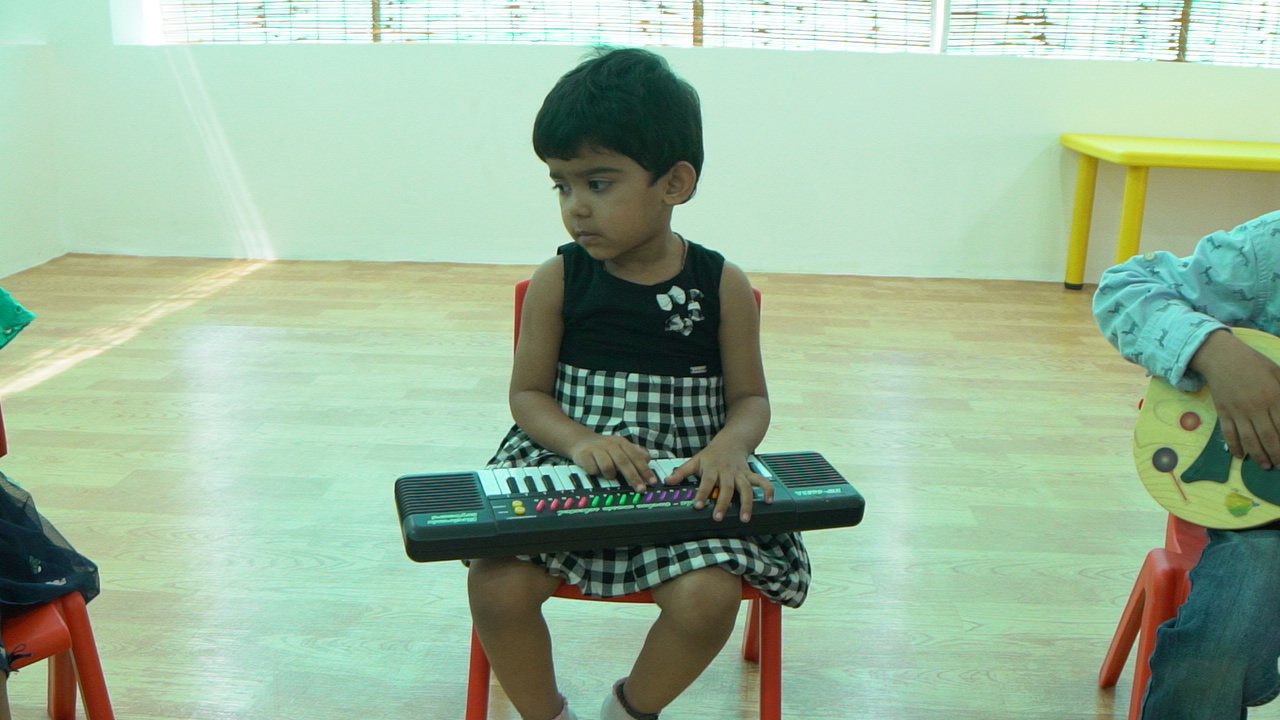
The process of learning how to play an instrument requires a lot of time, patience and persistence. The teachers, whose tutelage the children are under, set goals and milestones for them to achieve.
Over a period of time, children learn to set their own goals and milestones, derive satisfaction and eventually learn to have a sense of achievement over a task well done and pat themselves on the back for having been persistent all the while.
5.A sense of responsibility
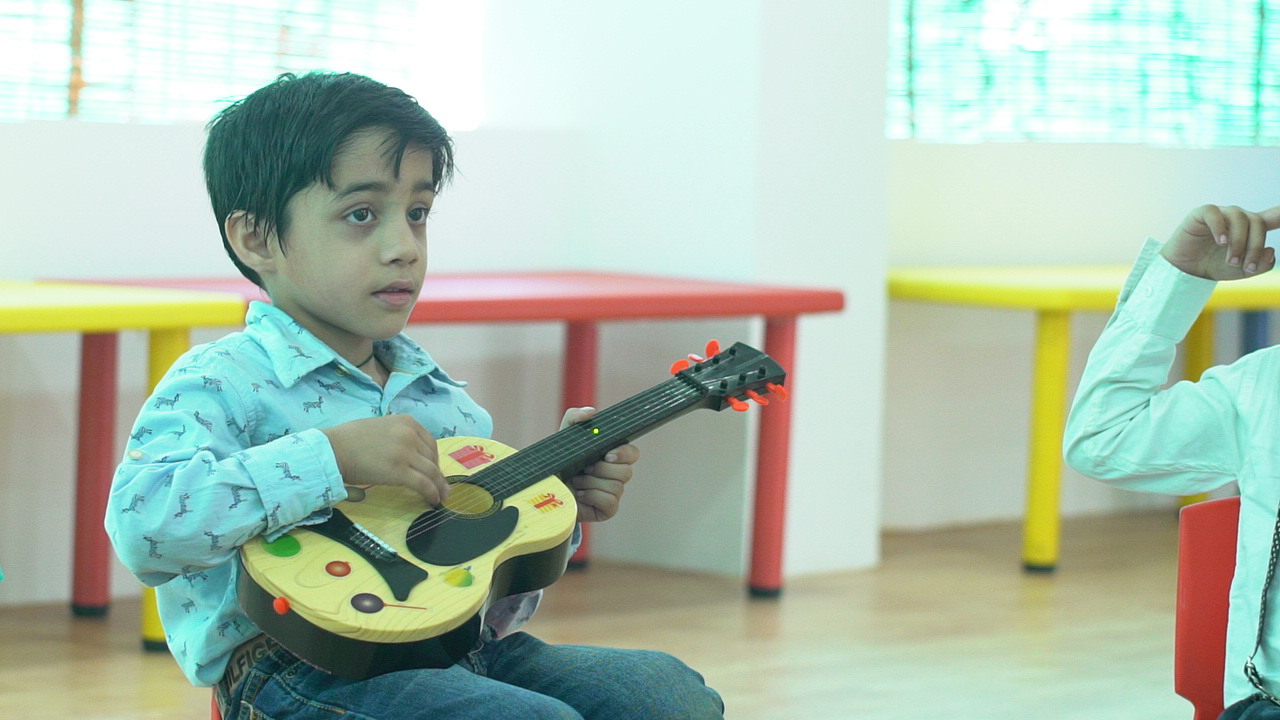
Instruments like guitar, violin, keyboards etc. require proper maintenance and caring. Catering to broken strings of a guitar, dusty keyboards and guitars, oiling wooden instruments, checking tune of the instrument etc. creates a sense of responsibility in a child.
Your child will also develop a sense of ownership and would automatically inculcate the values of taking care of one’s possessions. This is a crucial life skill that they would carry into their adulthood.
6.Better social skills, teamwork and creativity
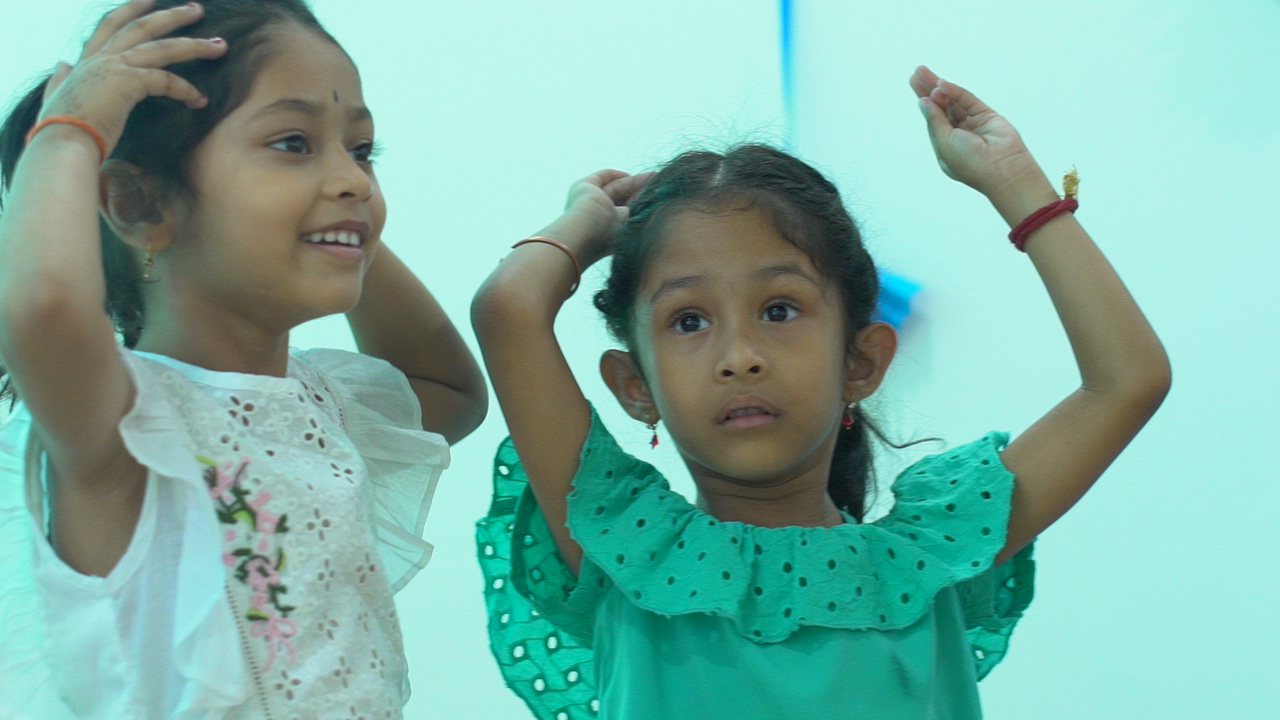
Playing an instrument would automatically want your child, or any musician for that matter, to collaborate with others playing the same or different instruments, and produce different kinds of music, sometimes even forming a band.
In this way, children will become a part of team, they would come together and experiment different forms of music, meet new people and derive immense satisfaction.
So, in this way, your child would understand the concept of teamwork by collaborating with others, creativity in trying out new forms of music, and better social skills by making friends with different kinds of people.
7.Cheerful disposition, reduced stress and depression
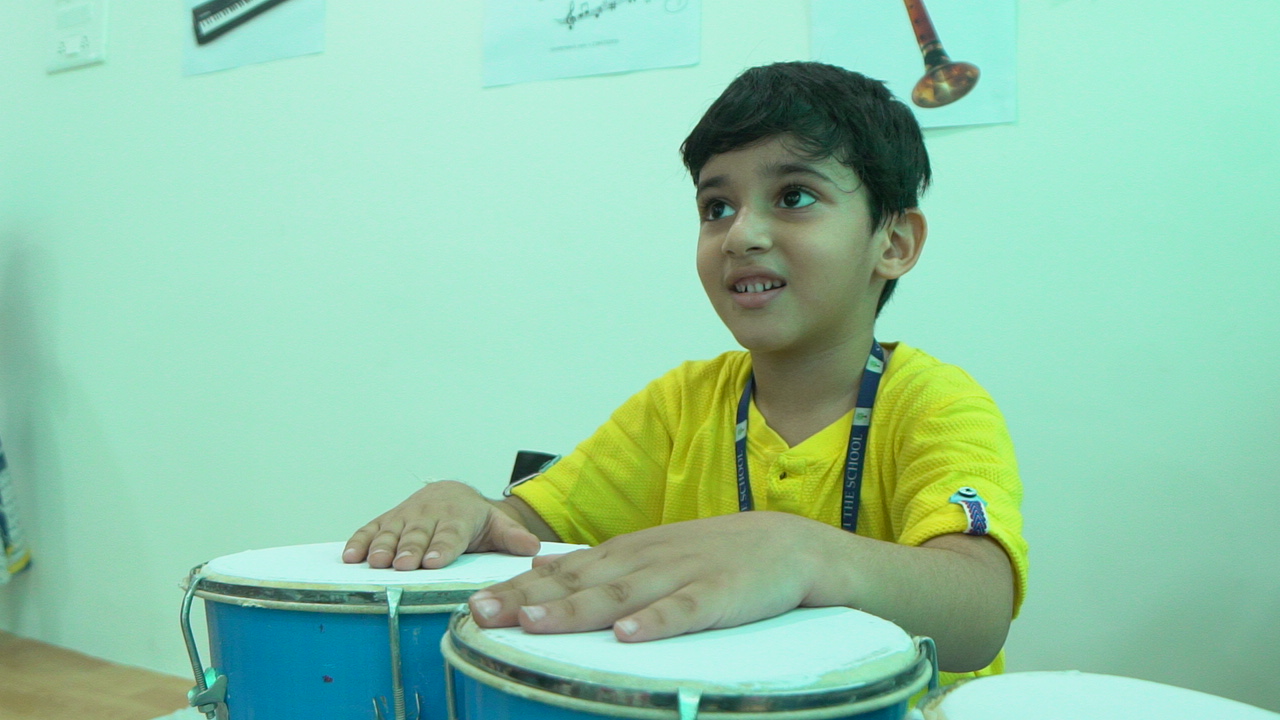
Children playing musical instruments have been shown to display happiness, optimism increased confidence in handling challenges and obstacles and immense satisfaction in comparison to the children who do not play instruments.
Such reduced stress has also been linked to children’s performance in school in their academics, and the results have been promising. So imagine what your child’s performance would be when your child decides to learn how to play a musical instrument.
8.Exposure to culture and history
Playing musical instruments gives your child a chance to get a glimpse of the culture and the period in history it was composed in.
When exposed to different kinds of music like jazz, hip-hop, classical, contemporary etc., it allows the child to appreciate the music, its origins, a deeper understanding of the music played and they eventually develop an attachment to the same.
Now that you have seen the amazing benefits a child can derive when playing a musical instrument, why don’t you ask your child if he wants to play one and see if it arouses interest. For who knows, it could be one of the best things to have ever happened in their life.




